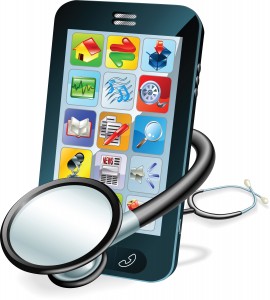 Rose O. Sherman, EdD, RN, NEA-BC, FAAN
Rose O. Sherman, EdD, RN, NEA-BC, FAAN
A growing number of our nursing workforce are members of Generation Y. Most are what author Don Tapscott describes as digital natives. Their communication and social lives take place in a very wired world using smart phones as their main connective device . Most of this generation even sleeps with their phones next to their pillows. The youngest members of this generation according to a recent Pew foundation report send up to 3000 text messages each month. So what happens when these young nurses enter a hospital environment where they are asked to leave their smart phones in their lockers?
“I feel like the phone police”, one manager observed recently in a seminar. Rarely, do I make rounds when I don’t catch at least one staff member with their phone. “Usually, they tell me that they are using medication applications or apps that will help in patient teaching.” I asked this group of managers how many of them had experiences where nurses and physicians were in text communication about patients using their own devices. More than half the managers reported that this was a problem. Nurses want to use smartphones in their everyday work.
The Dilemma
A recent study done by the Spyglass Consulting group, Health Care Without Bounds: Point of Care Computing for Nurses 2012, found that 69% of nurses interviewed reported that their colleagues are using their smart phones on the job for personal and clinical communication. This is being done outside of their hospital IT networks. This is of great concern to many nurse leaders who report inappropriate texting, the use of Facebook or taking pictures with cameras on smart-phones as part of the myriad of problems that they are seeing in clinical settings. Nurses contend having access to applications such as Epocrates, Medscape and Nursing Central can help them deliver more evidence-based care. As we move into the future and smart-phones apps become more sophisticated, they will likely become essential to patient care. Dr. Eric Topol, a cardiologist and researcher at Scripps in California, contends that smart-phones will revolutionize health care within a few short years. He offered some very compelling examples during a recent interview with Dr. Nancy Snyderman on the show Rock Center.
Where do we go from here?
Many companies outside of health care have established BYOD (bring your own device) policies and some even load encrypted programs onto employee owned devices. There are a growing number of health care systems that are using devices like the Voalte – a smart phone that is issued to nurses while on duty. Their Apple iPhone device is equipped with the most advanced clinical communication and allow in system texting. Some hospitals are reporting that the use of these devices has led to improved clinical communications, better patient outcomes and increased nurse job satisfaction. In a recent interview with Hospitals and Health Networks, the IT director of Mercy University of Pittsburgh Medical Center discussed a similiar initiative using specially designed Blackberrys with a chat text system and order alerts. The nurses and IT staff work together to design new applications to support nursing care.
It is easy to discount technology if you are not an early adopter but smart-phones are the future of care. The real question is not whether or not nurses should use them but rather how to use them, when to use them and the right smart-phone device to promote security.
Read to Lead
Spyglass Consulting Group (2012). Health Care Without Bounds: Point of Care Computing for Nurses 2012. Spyglass_PCOMP_Nursing_2012
Tapscott, D. 2009. Grown up Digital: How the Net Generation is Changing Your World. New York: McGraw-Hill.
Pew Foundation. 2010. “Teens and Mobile Phones.” http://pewinternet.org/Reports/2010/Teens-and-Mobile-Phones.aspx


 LinkedIn
LinkedIn Instagram
Instagram